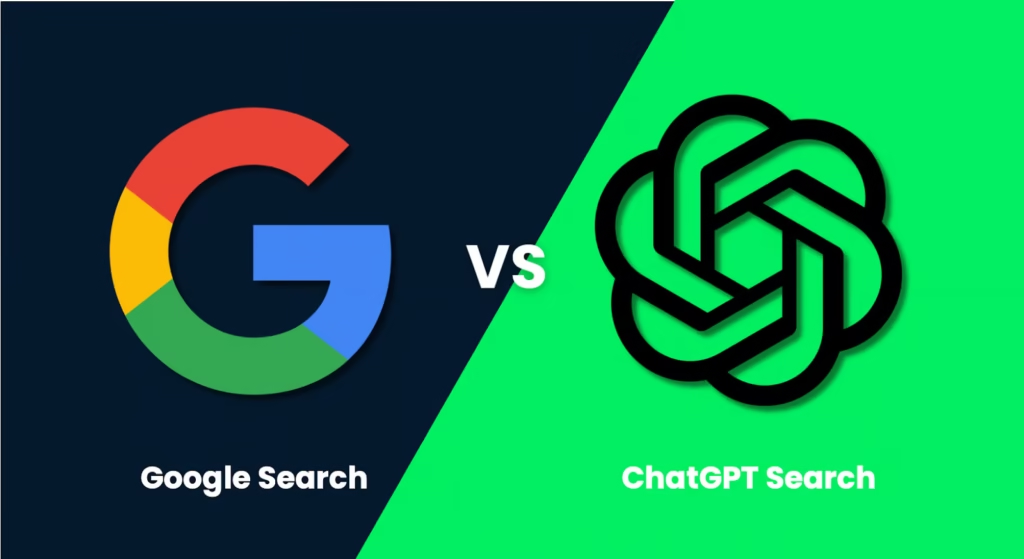Recently, AI search has been popping up as a rival to Google’s search engine monopoly. Specifically, OpenAI’s ChatGPT search feature has had quite the success rate and great reviews from users—I, for one, find it quite useful when it comes to quick research and insight. However, if you follow tech and AI news, then you’ve probably heard about AI search engines hallucinating and making up citations and results. This, to me, seems like a pretty big problem, seeing as I frequent the search feature for fast research and knowledge gathering. While true that we have known for quite some time that AI is prone to these hallucinations, one might assume that AI search basically browses the web and provides accurate data from available sources. Turns out, it’s not yet time to ditch the Google search engine. Better yet, it is time to emphasize the importance of proofreading more.
Google Search vs. AI Search
For decades, Google Search has been the undisputed king of internet searches. If you needed information, you “Googled” it. Simple as that, so much so here in Uganda we have the never aging “ask Mr.Google” whenever someone asks something over our heads. But with AI search tools like ChatGPT, Bing AI, and Perplexity AI joining the search market, it has been rather varied what one prefers over the other. People are starting to ask if they should switch to AI search engines? Are they more efficient? Is Google still the best tool for the job? and then they see article titles like “I tried this AI search and will never try Google again…” Hopefully, by the end of this article you will have gained some insights on the matter.
The Strengths of Google Search
For starters, Google’s search engine is built on a powerful algorithm that scours the internet, then ranks and indexes pages based on relevance, credibility, and user engagement.
1. Comprehensive and Up-to-Date Indexing
Google’s crawlers are constantly at work, indexing new and updated content across billions of web pages, meaning that when you search for something, you’re getting the most recent and reliable information available.
If you have heard of Search Engine Optimization (SEO), here is where it works its magic…it helps make your content easily indexable by these search engine algorithms, and thus readily available for users when they make an internet search relevant to your content.
2. Transparent Sources and Citations
When you search for something on Google, you get links to the sources. This allows you to fact-check, verify, and read more if needed. Unlike AI search, Google doesn’t generate its own responses (the insights and explanations)—it simply shows you what’s out there for you to go and understand on your own.
3. Real-Time and Niche Information
Need breaking news? Live updates? A government policy change? Google provides real-time information, while AI models are mostly limited to the data they were trained on. If you want up-to-the-minute data, Google will most probably be the best bet, even with real-time internet access by the more modern/latest AI models.
4. User Control Over Information
With Google, you can filter your search results using tools like search operators, time filters, and region-specific queries. AI search, on the other hand, gives you a one-size-fits-all response with limited customization.
Why People Love AI Search Though
AI search engines have gained popularity for a reason–they offer something Google doesn’t—human-like responses.
1. Conversational and Contextual Answers
AI search tools like ChatGPT don’t just spit out links—they summarize and explain concepts in a way that feels like you’re talking to an expert. Instead of skimming through multiple web pages, AI gives you an easy-to-digest response instantly, sometimes negating the need to click any links at all.
If you have made any internet searches recently, you have probably seen this partly in action with Google’s overview feature. You simply make a search, and it will give you an overview of what you are looking for, then provide you with the classic links to various internet pages.
2. Personalized and Interactive Research
With AI search, you can refine your query without starting from scratch. Need a more detailed explanation? Just ask. Want the response tailored to a specific context? AI search tools adapt, making research more interactive and easier to navigate for specific answers.
3. Efficiency and Speed
Rather than sifting through pages of search results, AI provides a direct answer. This is great for quick fact-checking or understanding complex topics without the hassle of navigating multiple websites and pages and picking snippets from each one. AI search will give you the exact response with answers and explanations.
The Drawback of AI Search: Hallucinations and Misinformation
But while AI search seems like the perfect recipe for a Google takeover, it has one pretty big flaw–it sometimes makes stuff up. This is known as AI hallucination—when the model generates false but factual-sounding information. And the problem is bigger than you think, you will not easily discern the falsehood without extensive proofreading.
1. False Citations
A recent study found that ChatGPT hallucinated fake but realistic-sounding scientific citations at an alarming rate. Imagine trusting AI search for academic research, or a report only to find out later that the references don’t exist.
2. Incorrect Legal and Medical Information
Another study revealed that AI search models frequently hallucinated on legal queries, producing incorrect information 69% to 88% of the time. When it comes to sensitive fields like medicine and law, misinformation can be downright dangerous, just think of citing symptoms or a rare condition that in fact doesn’t exist yet. Or a wrong law you pasted from an AI search tool.
3. Lack of Real-Time Data
AI models operate based on their training data, meaning they don’t have real-time access to news, events, or updates. If you ask an AI about a recent sports match or political development, you’re most likely getting outdated or fabricated details, unless you specifically ask for an internet search to supplement the query.
Google’s Response: AI-Integrated Search
Well, Google hasn’t monopolized the search engine market by just being idle, when AI search posed a threat, they responded with their own kind of hybrid working that is both modern AI and classic Google, and recently working on an even better AI Mode.
If you have done any internet searches lately, you have definitely noticed that Google has started rolling out AI Mode in its search engine. This new feature supplements AI-generated summaries with traditional search results, blending “the best of both worlds,” no pun intended.
- AI Mode offers a summarized answer but still provides source links for verification.
- Users can toggle between AI-assisted search and traditional search.
- Google aims to reduce the misinformation problem by combining AI with real-time indexing.
Google is adding more AI Overviews and a new ‘AI Mode’ to Search
However, if you are anything like me and would rather have your work and knowledge base as accurate as possible, then I suggest keeping the “caution” button on in your mind.
Should You Ditch Google Search for AI Search?
Not yet, simple as that. For the longest of time now AI has been prophesized to eventually take over many things, but that time isn’t yet upon us. AI search engines are useful, that’s a guarantee because I for one find it fast and efficient. But they shouldn’t replace Google entirely—at least not until they overcome their hallucination problem.
- Use AI search for quick explanations and brainstorming. It’s great for summarizing concepts, generating content, and interactive discussions.
- Stick to Google for factual, real-time, and research-heavy queries. Need news, citations, or credible sources? Google is still your best bet. That said, the latest AI search modes pretty much now come with links to their sources which you can fact-check.
- Always fact-check AI-generated responses. If an AI search tool gives you a surprising fact or statistic, verify it before taking it at face value. I find the best approach to this is to take AI responses as unfiltered material. To best use it, search and sort through it.
Google is adapting, AI models are improving, and users must become smarter about verifying their information.
True, AI search tools are impressive and there is no lack of evidence for that, however, they’re not infallible. For now, Google remains the gold standard for reliable information, but AI search is undoubtedly shaking things up.
But then again, you will probably have your own understanding of which works best for you, this is but an insight into the Google VS AI search scope of things.




